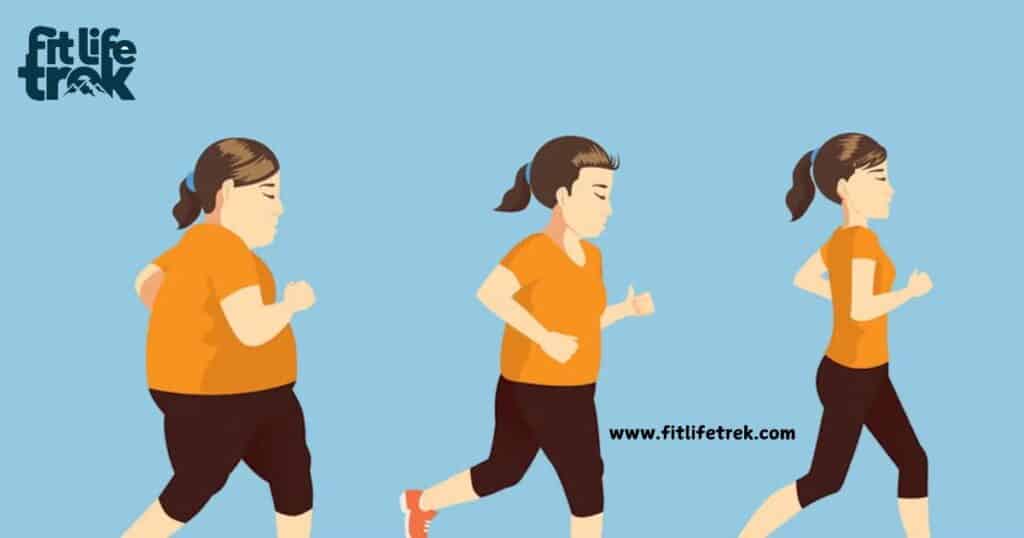Walking is a simple and healthy activity for people of all ages. It helps to keep the heart strong and improves overall health. Walking for 30 minutes each day can boost energy, strengthen muscles, and keep bones healthy. It also helps control weight by burning calories. Walking is great for the mind, too, as it reduces stress and improves mood.
Wondering about starting a walking routine but not sure how long it’ll take to cover 5 miles? You’re in the right place! Whether you’re a beginner or an experienced walker, understanding walking speed and time commitments helps you plan your fitness journey better. This guide breaks down everything you need to know about 5-mile walking time across different age groups and fitness levels.
Think of walking as your personal path to better health. It’s like having a free gym membership that you can use anywhere, anytime! Let’s dive into the details of what makes a 5-mile walk both achievable and enjoyable.
How Long Does It Take to Walk 5 Miles?
The average person takes between 90-120 minutes to walk 5 miles at a comfortable pace. Your walking speed typically falls between 15-20 minutes per mile. This timing varies based on your fitness level, terrain, and walking intensity. A brisk walk pace might get you there faster, while a leisurely stroll could take longer.
Think of it this way: if you’re walking at a moderate 3 mph pace (about as fast as you’d walk when you’re slightly late for an appointment), you’ll complete your 5 miles in about 100 minutes. Experienced walkers might maintain a brisk walk pace of 4 mph, finishing in just 75 minutes.
| Walking Pace | Time to Complete 5 Miles | Suitable For |
| Leisurely (2.5 mph) | 120 minutes | Beginners, Elderly |
| Moderate (3 mph) | 100 minutes | Average Adults |
| Brisk (3.5 mph) | 85 minutes | Fit Adults |
| Power Walking (4 mph) | 75 minutes | Athletic Adults |
How Far is 5 Miles?
To put 5 miles in perspective, imagine walking across 88 football fields or around a typical high school track 20 times. In metric terms, 5 miles equals 8.04 kilometers. For city dwellers, this distance often represents the space between 50-60 city blocks.
A helpful way to visualize this distance is through familiar landmarks. In New York City, for example, walking from Times Square to Central Park and back would be roughly equivalent to a 5-mile walking time.
Average Time to Walk 5 Miles for Women by Age

Women’s walking speed by age and gender varies significantly throughout life stages. Younger women typically maintain faster paces, while older adults may prefer a more comfortable stride. Your natural walking speed often reflects your overall fitness and activity level.
Here’s a detailed breakdown of average walking times for women:
| Age Group | Average Speed (mph) | 5-Mile Time | Notes |
| 20-30 | 3.5-4.0 | 75-85 mins | Peak physical condition |
| 31-40 | 3.2-3.8 | 80-90 mins | Strong fitness maintenance |
| 41-50 | 3.0-3.5 | 85-100 mins | Steady pace preferred |
| 51-60 | 2.8-3.2 | 95-110 mins | Focus on consistency |
| 60+ | 2.5-3.0 | 100-120 mins | Emphasis on comfort |
Average Time to Walk 5 Miles for Men by Age
Men generally maintain slightly faster walking speeds due to average differences in stride length and muscle mass. However, individual fitness levels and walking abilities vary greatly regardless of gender. Understanding your personal pace helps set realistic goals.

The following table shows typical walking speed by age and gender for men:
| Age Group | Average Speed (mph) | 5-Mile Time | Notes |
| 20-30 | 3.7-4.2 | 70-80 mins | Optimal physical prime |
| 31-40 | 3.4-4.0 | 75-85 mins | Strong endurance phase |
| 41-50 | 3.2-3.7 | 80-95 mins | Maintained fitness level |
| 51-60 | 3.0-3.5 | 85-100 mins | Focus on consistency |
| 60+ | 2.7-3.2 | 90-110 mins | Comfort prioritized |
What Are the Health Benefits of Walking?
Walking for cardiovascular health offers amazing benefits that transform your whole body. Let’s explore nine key advantages of maintaining a regular walking routine.
Improves Heart Health
Regular walking strengthens your heart muscle and improves circulation. Research shows that moderate-intensity exercise like walking for 30 minutes daily can reduce heart disease risk by up to 30%. Your heart becomes more efficient, pumping more blood with less effort.
Help in Losing Weight

Weight loss through walking happens naturally when you maintain a consistent routine. A 5-mile walk burns significant calories, supporting your weight management goals. Combined with proper nutrition, walking helps create the caloric deficit needed for sustainable weight loss.
Reduces the Risk of Dangerous Diseases
Walking regularly helps prevent various chronic conditions. Studies show that daily walking goals of 5 miles can reduce type 2 diabetes risk by 20-40%. It also lowers the risk of certain cancers and cardiovascular diseases.
Boost Immunity
Your immune system gets stronger with regular walking. Research indicates that moderate-intensity exercise like walking increases the circulation of immune cells, helping your body fight off infections more effectively.
Improves Brain Health
Walking for mental well-being enhances cognitive function. Studies show that walking increases brain volume and improves memory. Regular walkers score higher on cognitive tests and show reduced risk of age-related mental decline.
Encourages Creative Thinking
Creative thinking and walking go hand in hand. Famous thinkers like Steve Jobs were known for their walking meetings. Walking increases creative output by up to 60%, making it perfect for problem-solving and brainstorming.
Increases Energy
Regular walking boosts your energy levels naturally. Unlike caffeine, the energy boost from walking lasts longer and helps regulate your sleep-wake cycle. This creates a positive cycle of increased daily energy and better rest.
Strengthens Bones and Muscles
Walking for bone strength provides low-impact exercise that builds bone density. Regular walkers show 40% lower risk of hip fractures. It also strengthens core muscles and improves balance.
Improves Mood and Mental Health
The effect of walking on mental health is remarkable. A regular walking routine reduces anxiety and depression symptoms by up to 30%. Walking releases endorphins, nature’s mood lifters.
How Do You Make a 5-Mile Walk Interesting?

Creating engaging walking route suggestions keeps your routine fresh and motivating. Here are proven strategies to make your walks more enjoyable.
Change Your Walking Route
Explore different neighborhoods and parks. Varying your route prevents boredom and challenges different muscle groups. Try urban trails one day and nature paths the next.
Listen to Your Favorite Music
Create energizing playlists that match your walking rhythm. Music can increase your pace naturally and make time fly by. Podcasts and audiobooks work great too.
Walk with Your Friend
Social walking builds accountability and makes time pass quickly. Plus, conversation naturally helps maintain a steady brisk walking time per mile.
Set Goals
Use a 5-mile walking time calculator or fitness app to track improvements. Set weekly distance goals and celebrate achievements to stay motivated.
Add Strength Exercises
Incorporate simple exercises like lunges or arm circles during your walk. This boosts calorie burn and adds variety to your routine.
How Many Steps Are in 5 Miles?
Understanding steps per mile calculation helps track your progress accurately. The total steps depend on your stride length, which varies by height and walking style.
Calculation:
Average stride length varies by gender:
- Men: ~2.5 feet per stride
- Women: ~2.2 feet per stride
Example
For average stride lengths:
- 5,280 feet (1 mile) ÷ 2.5 feet = ~2,112 steps per mile
- 2,112 steps × 5 miles = ~10,560 steps
How Many Calories Do You Burn Walking 5 Miles?
Calories burned walking 5 miles varies based on weight and pace. Here’s a comprehensive breakdown:
| Weight (lbs) | Calories/Mile (3 mph) | Total for 5 Miles |
| 130 | 85 | 425 |
| 155 | 102 | 510 |
| 180 | 118 | 590 |
| 205 | 135 | 675 |
Understanding Walking Speeds and Fitness Levels
Before diving deeper into specific times, it’s important to understand how fitness levels and walking abilities vary among individuals. Your personal walking speed might differ from averages based on several factors. Think of walking speed as your fitness fingerprint – it’s unique to you and can change over time.
Professional fitness trainers often categorize walking speeds into four main levels:
| Speed Level | Pace (mph) | Description | Best For |
| Casual | 2.0-2.5 | Relaxed, comfortable pace | Beginners, Recovery |
| Moderate | 3.0-3.5 | Purposeful walking | General Fitness |
| Brisk | 3.5-4.0 | Elevated heart rate | Weight Loss |
| Power | 4.0-4.5 | Athletic pace | Advanced Fitness |
The Science Behind Walking Benefits
Recent studies have revealed fascinating insights about walking for cardiovascular health. A 2023 study published in the American Journal of Preventive Medicine found that consistent walking reduces cardiovascular disease risk by up to 35%. Let’s explore these benefits in detail.
Improves Heart Health (Expanded)
Your heart is a muscle that gets stronger with regular walking. When you maintain a moderate-intensity exercise routine:
- Heart rate variability improves by 15-20%
- Blood pressure typically drops by 5-10 points
- Resting heart rate decreases by 5-8 beats per minute
- Cardiovascular endurance increases by 20-30%
A remarkable case study from Mayo Clinic followed 50 adults who started a 5-mile daily walking routine. After six months, 82% showed significant improvements in heart health markers.
Making Your Walk More Effective
Beyond just completing your 5-mile walking time, certain techniques can maximize benefits:
Proper Walking Form
- Keep your head up and shoulders relaxed
- Engage your core muscles
- Roll through your feet from heel to toe
- Swing arms naturally at your sides
- Maintain good posture throughout
Breathing Techniques
Learn to coordinate your breathing with your steps:
- Inhale for 2-3 steps
- Exhale for 2-3 steps
- Practice rhythmic breathing
- Stay relaxed and natural
Advanced Walking Strategies
For those looking to enhance their walking for weight management, consider these advanced techniques:
Interval Walking
Alternate between different speeds:
- Walk at moderate pace (3 mph) for 5 minutes
- Speed up to brisk pace (4 mph) for 2 minutes
- Return to moderate pace
- Repeat pattern throughout walk
Terrain Variation
Incorporate different surfaces and elevations:
- Flat sidewalks (base conditioning)
- Hills (increased intensity)
- Nature trails (balance challenge)
- Beach sand (resistance training)
Nutrition for 5-Mile Walks
Proper fueling optimizes your walking for cardiovascular health. Here’s a comprehensive guide:
Before Your Walk
| Time | Food Suggestions | Purpose |
| 2 hours before | Whole grain toast with banana | Sustained energy |
| 1 hour before | Apple with small handful of nuts | Quick energy |
| 30 minutes before | Half energy bar | Blood sugar stability |
During Your Walk
For walks over 60 minutes, consider:
- Water (4-6 oz every 20 minutes)
- Electrolyte drinks for hot days
- Small energy snacks if needed
Post-Walk Recovery
| Timing | Nutrition | Benefits |
| Within 30 minutes | Protein shake or chocolate milk | Muscle recovery |
| Within 2 hours | Balanced meal with protein and carbs | Energy replenishment |
Technology and Walking
Modern technology has revolutionized how we track and improve our walking speed. Here are the most effective tools:
Popular Walking Apps
| App Name | Best Features | User Rating |
| Strava | Route mapping, community features | 4.8/5 |
| MapMyWalk | Detailed statistics, food logging | 4.6/5 |
| Fitbit | Overall activity tracking | 4.7/5 |
| Nike Run Club | Guided walks, achievements | 4.5/5 |
Smart Device Integration
Learn to maximize your device’s features:
- GPS tracking accuracy
- Heart rate monitoring
- Step counting calibration
- Route planning tools
Is Walking 5 Miles Daily Enough?
According to physical activity guidelines, walking 5 miles daily exceeds the recommended 150 minutes of moderate activity per week. This level of activity supports overall health maintenance and weight management goals.
Can a 5-Mile Daily Walk Help You Lose Weight?
Yes! Walking for weight management can be highly effective. A 5-mile daily walk burns 250-600 calories, depending on your weight and pace. Combined with proper nutrition, this can lead to sustainable weight loss.
How Do I Track My Walk Time?
Tracking walking distance has never been easier. Modern options include:
- Fitness apps (MapMyWalk, Strava)
- Smart watches
- Pedometers
- Phone GPS tracking
Walking Tips for Beginners

Starting a walking routine requires proper preparation. Here are essential daily walking routine tips:
Wear the Proper Walking Gear
Invest in quality walking shoes and moisture-wicking clothes. Proper gear prevents blisters and keeps you comfortable.
Hydrate Yourself
Drink water before, during, and after your walk. Carry a water bottle for walks longer than 30 minutes.
Maintain Body’s Energy
Eat a light snack before long walks. Choose easily digestible carbohydrates for sustained energy.
Stretch Your Muscles
Perform dynamic stretches before and static stretches after walking. This prevents injury and reduces muscle soreness.
Make Your Walk Enjoyable
Choose pleasant routes and comfortable times of day. Walking should be something you look forward to.
Safety Tips
Always prioritize safety during your walks:
- Wear reflective gear in low light
- Walk against traffic on roads
- Carry identification
- Tell someone your route
- Stay aware of surroundings
- Keep one ear free when using headphones
Conclusion
Walking 5 miles daily can transform your health and fitness level. By understanding your pace and following these guidelines, you’ll maximize the benefits of your walking routine. Remember, consistency matters more than speed. Start where you are and gradually build up to your goals.
Walking is a great way to stay healthy and active. It helps people of all ages feel better and keep their bodies strong. The time it takes to walk five miles depends on age, gender, and speed. “How Long Does It Take to Walk 5 Miles? Average Times for Various Age Groups and Genders” shows that younger people can often walk faster than older people. Men might also walk faster than women.
Most people can finish five miles in about 90 to 120 minutes. Regular walking is good for the heart, mind, and body. It also helps control weight and makes bones stronger. Walking can be fun and easy to do every day. It is a simple way to improve health and feel happy.
FAQ: How Long Does It Take To Walk 5 Miles?
What’s the average time to walk 5 miles?
Most people complete 5 miles in 90-120 minutes at a moderate pace.
Will walking 5 miles help me lose weight?
Yes, walking 5 miles burns 250-600 calories, supporting weight loss when combined with proper diet.
How can I track my walking progress?
Use fitness apps, smartwatches, or pedometers to monitor distance, time, and calories.
Is walking 5 miles too much for beginners?
Start with shorter distances and gradually build up to 5 miles as your fitness improves.
What’s a good walking pace?
3-3.5 mph is a good moderate pace for most adults.

